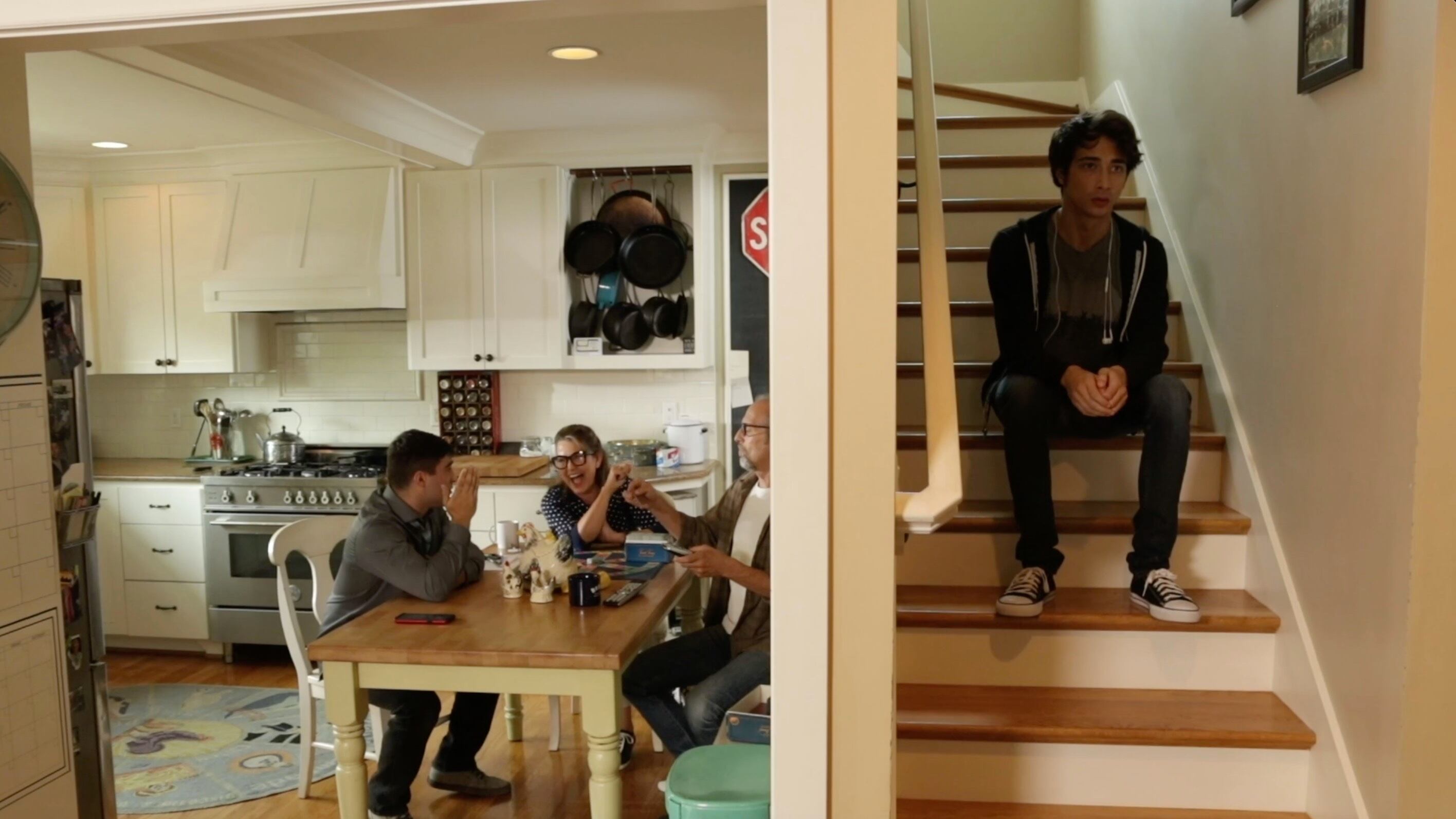Beth + Jeremy and Steve, a Portland-shot and -set rom-com by writer-director Daniel Hill, enjoyed a largely trouble-free shoot in 2019. It was post-production, of course, where things proved more tricky. The pandemic interrupted the movie’s rollout for years. It debuted back in May at Portland State University’s 5th Avenue Cinema, and quietly appeared on streaming services over the summer, including Amazon Prime Video and AppleTV+.
Rom-coms can be tough to promote for seasoned actors and directors, but making one as a feature debut with virtually no recognizable star power was always going to be an uphill battle—especially when one point of the love triangle is a minor. Nevertheless, video-on-demand platforms are great for microbudget films like Beth + Jeremy and Steve to build word of mouth, revealing their hidden-gem status as well earned.
The title might be frustratingly formulaic, but Beth + Jeremy and Steve’s plot is anything but. Our embittered hausfrau (Briana Ratterman) struggles in her marriage to fellow 30-something Steve (Matthew DiBasio). They alternate between sowing conversational mine fields and bursting into uncontrollable fits of shriek sobbing when left alone. But when Beth meets Jeremy (Lucas Friedman) at a local record shop, the shock waves from her imploding marriage threaten the teen swimmer/DJ’s stability in a way that doesn’t scream dated sex comedy. Instead, Beth + Jeremy and Steve masters a consistent tone and makes nuanced observations without a trace of moralistic sniggering or clutching of pearls.
This character study is blessed by wonderful performances at its center. As the depressive pixie dream boy plucked from a neighborhood record store, Friedman—who was older than 18 during filming—plays Jeremy as equal parts Adrian Brody and Audrey Tautou. He rocks unknowable teen fragility with such panache that audiences can almost understand Beth’s weakness. Ratterman, meanwhile, squeezes every drop of delight from Beth’s forbidden fruit. For better or worse, the first-time filmmaker manages to evoke the frustrations and delights forcing the decidedly uneven romantic triangle without ever a hint of salacious or lurid melodrama.
Currently prepping a new original screenplay for production (a high school thriller this time), Hill reminisced with Willamette Week about his movie’s inspirations and Portland locations. This conversation has been lightly edited for brevity and clarity.
WW: How’s the film doing?
Daniel Hill: I just got out of a meeting—one of those five-, six-people meetings—with my producers taking a lot of information about what they’ll be sending us in terms of hits, metrics, but it’s just started, you know?
Not what you’d imagined when the film wrapped?
This was changing even as we started streaming. It’s all different because of VOD. COVID just accelerated the process.
And, five years later, Portland’s changed a bit as well. Does the town feel the same? Is the record store still around?
Future Shock was great, and they’re still here. [Editor’s note: Future Shock closed in April.] Actually, most of the locations are still around except for one—the Tonic Lounge. We got to shoot there, and then they leveled it about two months after we were done.
What about the swim meets?
That took a lot of preproduction. The swimmers didn’t commit till about a week before, so getting everything together was something.
For a presumably low-budgeted indie, replicating a swim meet rather than, say, a track meet just seemed so much more difficult, unless you meant to highlight the Graduate connection.
People have been saying that. Wasn’t purposeful, but I get it. I have experiences swimming because I swam.
Ah, that makes sense.
We had Lucas training for about three months, and that did pretty well. Everything you see, he did himself.
Did you have to hide things from the college? Did they not really read the script? Was there any blowback?
No, no. Why did you think there would be?
He’s 17! And most public institutions get crazy about any hint of impropriety.
Oh, in terms of the people involved, I see what you’re saying, but no, not really.
This never came up?
Yeah, it’s come up. At the screening, it came up. You know, it’s weird. When you see the film, you can make your own judgment, of course, but…
It’s not titillating, certainly.
Let’s say that. I don’t want to ruin the film, but the way that it’s presented doesn’t necessarily celebrate anything. I think [the story] is told with honesty—starting from three people who need to connect at this place in their lives, regarding them as human beings, and not judging them for the choices they’ve made, even though there are consequences for all of them.
Did this also draw on personal experience?
[pause] I’ll say yes, but that’s all.
Which one were you? More of a Steve, say?
That’s a good question. There’s also exploration. I guess I was all three at different points in my life? Let’s leave it at that.

